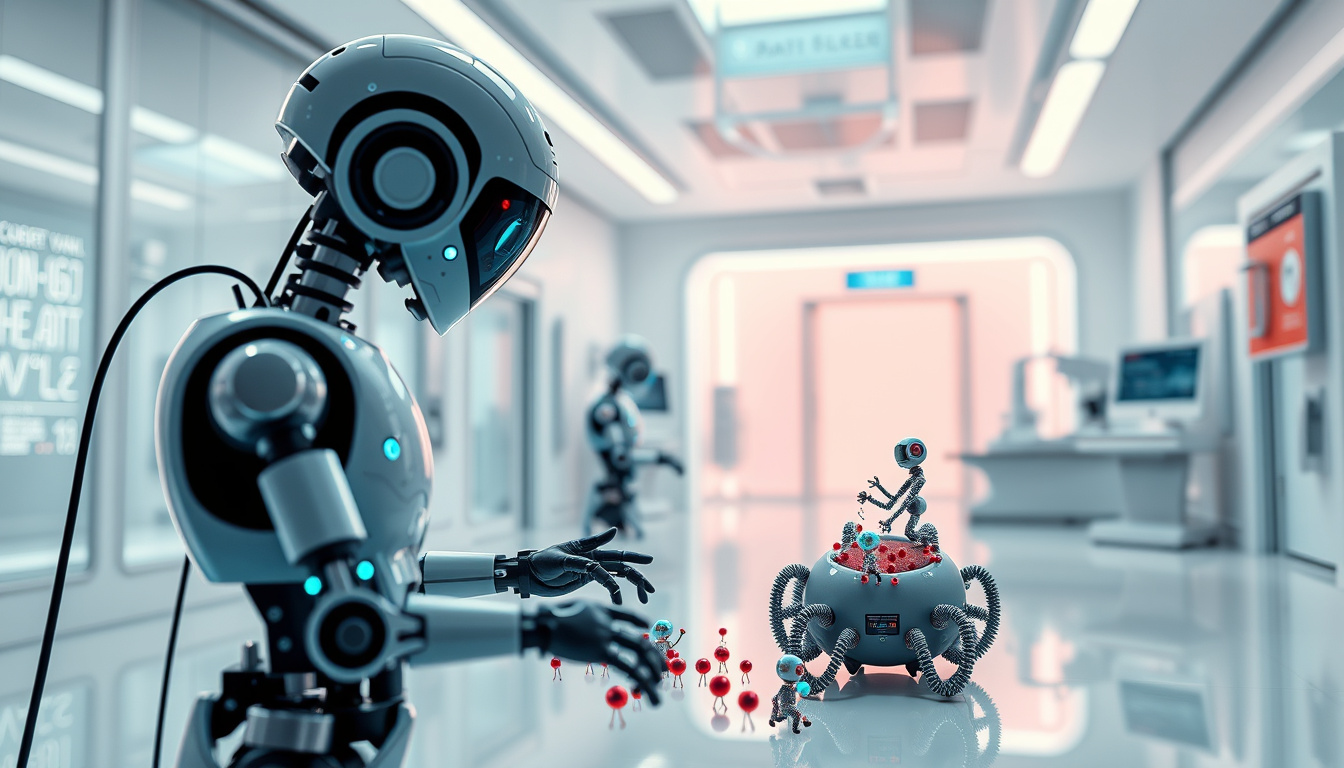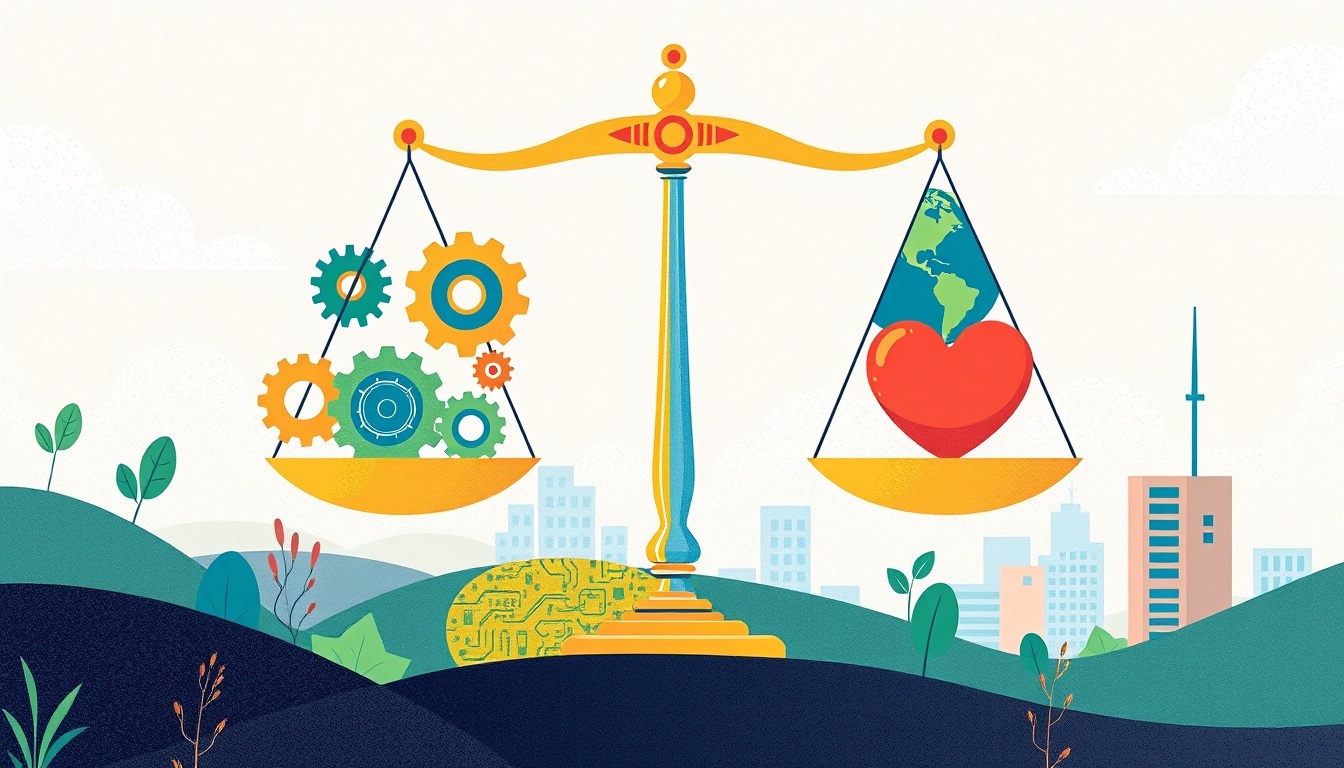In an age where science fiction is rapidly becoming science fact, ‘Nano Dreams’ embodies the aspirations and possibilities brought forth by the fascinating field of nanotechnology. Nanotechnology, the manipulation of matter on an atomic and molecular scale, is revolutionizing various sectors, especially healthcare, material science, and electronics. As we journey through the intricacies of nanotechnology, we will explore its profound impact on modern science, the groundbreaking innovations it promises in medicine, the future trends poised to redefine our existence, and the ethical considerations that accompany such remarkable advancements. Join us as we unravel the nano dreams that are shaping our world.

Key Takeaways
- Nanotechnology is a rapidly evolving field with significant implications for various industries.
- The impact of nanotechnology on modern science is transformative, leading to advancements in materials and engineering.
- In medicine, nanotechnology is set to revolutionize healthcare through targeted drug delivery and advanced diagnostics.
- Future innovations in nanotechnology promise breakthroughs in energy, electronics, and environmental sustainability.
- Ethical considerations are crucial in nanotechnology to ensure responsible development and application.
Understanding Nanotechnology: An Introduction
Nanotechnology is an exciting field at the forefront of scientific research and technological advancement, encompassing the manipulation of matter on an atomic and molecular scale. Often referred to as the science of small things, nanotechnology plays a critical role in various industries, including medicine, electronics, and materials science. One of the most fascinating aspects of this discipline is how it transforms our understanding of the material world, leading to innovative solutions that align with our ‘Nano Dreams’ of a more advanced future. By leveraging the unique properties exhibited by materials at the nanoscale, researchers can create products that are lighter, stronger, and more efficient. For instance, in healthcare, nanotechnology is revolutionizing drug delivery systems, enabling targeted therapies that minimize side effects while maximizing treatment efficacy. As we delve deeper into the realm of nanotechnology, the possibilities expand, allowing us to dream big and push the boundaries of what we can achieve at an infinitesimal scale.
The Impact of Nanotechnology on Modern Science
Nanotechnology, often referred to by its endearing moniker, ‘Nano Dreams,’ is revolutionizing the landscape of modern science by enabling innovations previously thought impossible. This emerging field, which manipulates matter at the molecular and atomic levels, is paving the way for groundbreaking advancements across various industries, from medicine to electronics. In the realm of healthcare, nanotechnology is leading to targeted drug delivery systems that promise enhanced treatment efficacy with minimal side effects—an innovation dreamt of in the realms of science fiction. Furthermore, the application of nano materials in manufacturing is resulting in lighter, stronger products, reshaping our approach to sustainable development. As researchers continue to explore the potential of Nano Dreams, the implications for environmental science, diagnostics, and renewable energy are monumental, making it a cornerstone of modern scientific endeavor.
‘The great thing about nanotechnology is that it allows us to create new dimensions of science. The future is only as small as our dreams can make it.’ – Unknown

Nano Dreams in Medicine: Revolutionizing Healthcare
As we stride into the future of healthcare, nano dreams are turning from abstract concepts into revolutionary innovations that promise to reshape the medical landscape. At the heart of this transformation lies nanotechnology, which focuses on manipulating matter on an atomic or molecular scale. This cutting-edge approach enables the development of novel diagnostic tools, targeted drug delivery systems, and advanced therapeutic strategies that could dramatically improve patient outcomes. For instance, nanoparticles can be engineered to deliver drugs directly to diseased cells, minimizing side effects and enhancing treatment efficacy. Furthermore, innovations such as nanosensors allow for real-time monitoring of health conditions at a cellular level, providing clinicians with unprecedented insights into patient wellness. With ongoing research and investment in nano dreams, the potential for breakthroughs in early disease detection, personalized medicine, and regenerative therapies seems limitless, paving the way for a new era of healthcare that prioritizes precision and efficiency.
Future Innovations: What Lies Ahead for Nanotechnology
As we look toward the horizon of scientific advancements, the future of nanotechnology holds immense promise, brimming with what can only be described as ‘Nano Dreams.’ This exciting field promises groundbreaking innovations that could revolutionize various industries, from medicine to electronics. One of the most significant areas of advancement is in medical applications, where nanoparticles are being developed for targeted drug delivery systems that can enhance the efficacy of treatments while minimizing side effects. Additionally, in the realm of clean energy, nanotechnology is paving the way for more efficient solar panels and energy storage systems, potentially leading us toward a sustainable future. Furthermore, the field is set to impact materials science, with nanoscale engineering creating stronger, lighter materials with unique properties. As researchers delve deeper into the molecular world, the reality of these Nano Dreams seems increasingly achievable, promising a future where technology seamlessly integrates into our daily lives, improving health, enhancing productivity, and preserving the environment.

Ethical Considerations: Balancing Progress and Responsibility
As we advance into an era dominated by technological innovation, the concept of ‘Nano Dreams’ arises, encapsulating the aspirations for transformative advancements in nanotechnology. However, with these dreams come ethical considerations that cannot be overlooked. It is imperative to strike a balance between the exhilarating potential of nanotechnology—such as revolutionary medical treatments, enhanced materials, and environmental sustainability—and the responsibilities we hold to society, the environment, and future generations. Critical questions regarding safety, privacy, and equity must be addressed to ensure that our progress does not come at an unacceptable cost. Engaging diverse stakeholders in the conversation, including ethicists, scientists, and the public, can help navigate the complexities of these advancements. Ultimately, by embracing an ethical framework alongside our nano dreams, we can pave the way for a future that honors both innovation and responsibility.
Frequently Asked Questions
What is nanotechnology and how does it relate to nano dreams?
Nanotechnology is the manipulation of matter at the nanoscale, which is about 1 to 100 nanometers. Nano dreams refer to the visionary applications of this technology that can significantly transform various fields, particularly in medicine and materials science.
How is nanotechnology impacting modern science?
Nanotechnology is driving advancements in various scientific fields, leading to breakthroughs in materials science, electronics, and healthcare. It enables researchers to create more efficient energy sources, develop new materials, and enhance drug delivery systems.
What are some examples of how nanotechnology is revolutionizing healthcare?
Nanotechnology is revolutionizing healthcare through targeted drug delivery systems, enhanced imaging techniques, and the development of personalized medicine. For instance, nanoparticles can deliver medication directly to affected cells, minimizing side effects.
What future innovations can we expect from nanotechnology?
Future innovations in nanotechnology may include smart materials that adapt to their environment, advanced medical devices for diagnostics, and sustainable energy solutions. The continued exploration of nanoscale materials will unlock unprecedented capabilities.
What ethical considerations should we be aware of regarding nanotechnology?
As nanotechnology advances, ethical considerations include potential risks to human health and the environment, privacy concerns related to nano-enabled surveillance, and the need for policies to govern its use. Balancing innovation with responsibility is crucial.

Leave a Reply